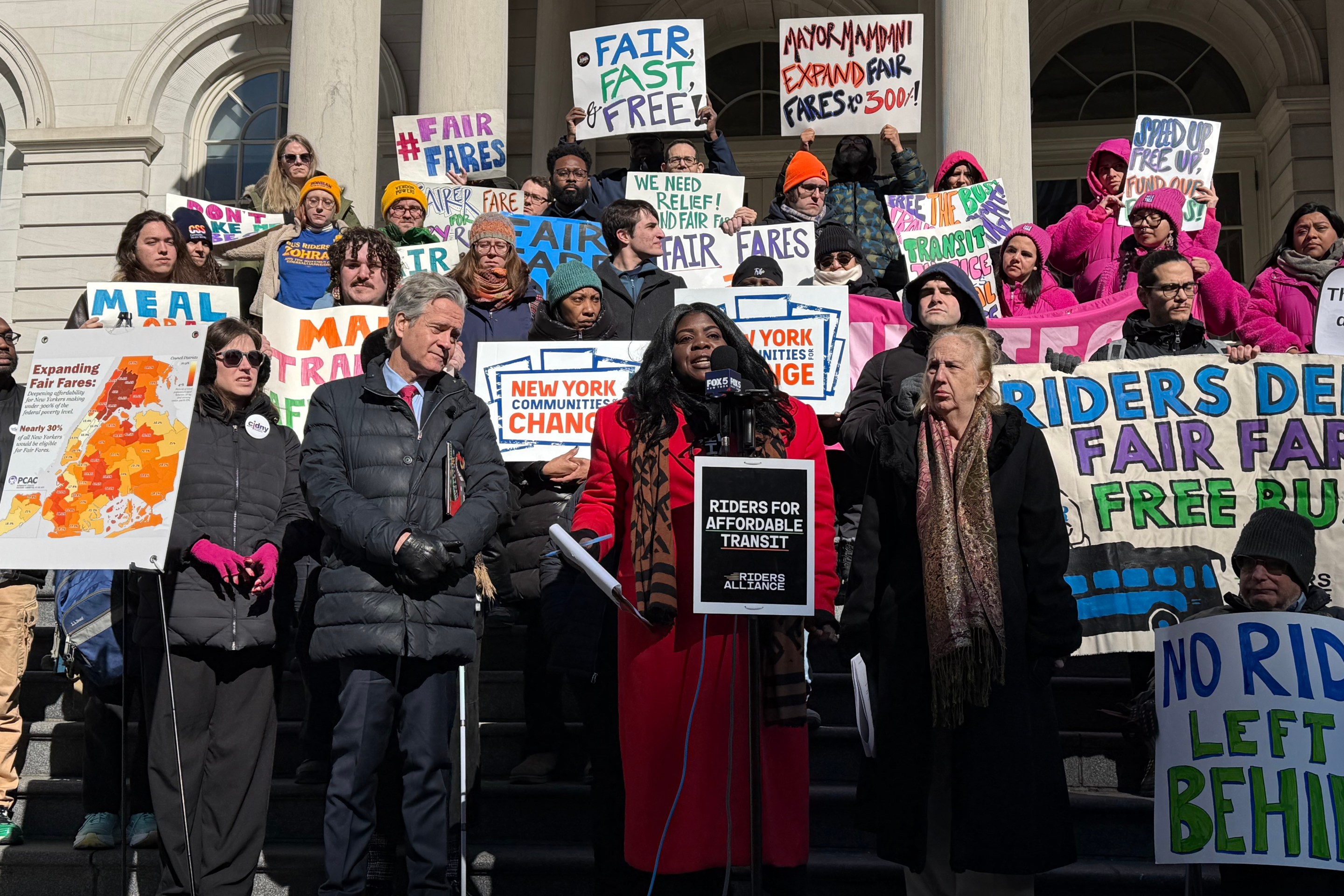Back in February, the Department of Transportation requested a two percent budget increase for next year (FY 2011). [PDF] The extra $2 billion would pay for things like a new Distracted Driver Prevention Program, high speed rail, and livability grant programs.
They're finally getting an answer from Congress, and it's a resounding "no."
Congress has been unable to make any progress on an omnibus spending bill, in no small part because of top Senate Republican Mitch McConnell's declaration that "Americans don’t want Congress passing massive trillion-dollar bills thrown together behind closed doors."
The fiscal year began October 1. An interim continuing resolution was passed to keep the government open at current spending levels until December 3. On December 3, Congress continued it until December 18. Now they're just throwing in the towel on the whole exercise. Today, the House is expected to pass a year-long continuing resolution, basically enacting a FY2011 budget that's almost a carbon copy of the FY2010 budget.
Democrats are betting that this will lead to a better outcome than passing another interim CR and letting the Republicans draft the spending bills once the new Congress is seated.
Still, Appropriations Committee Chairman Dave Obey (D-WI), who is in his last weeks in Congress, betrayed his frustration in this statement:
At a time when we are apparently extending huge tax cuts for millionaires and we’re giving families worth ten million dollars or more a bye on paying taxes on their good fortunes, this Committee has done its dead level best within the constraints under which we are operating to make some modest adjustments to salvage some investments which over the long haul just might create more jobs than a tax break for millionaires and adjustments that just might ease the financial desperation facing so many families today who cannot afford to send their kids to college, to find decent child care, or to provide adequate medical attention for their needs.
Use of continuing resolutions has expanded in recent years, but it's still unusual to pass an entire year's budget in the form of a CR. According to a report by the Congressional Research Service, "Since FY1997, conflicts over outstanding regular bills have generally been resolved in omnibus appropriations measures, rather than full-year continuing resolutions. The only exception was FY2007; for that year nine of 11 FY2007 regular bills were funded for the entire fiscal year in a continuing resolution." [PDF]
First, this is a very bad omen for the next Congress, foreshadowing some nasty gridlock.
Second, it throws into question how priorities will shake out on transportation. CRs tend not to be very specific. So, if the DOT decides it absolutely must have that Distracted Driver Prevention Program, what gets cut to make room for it? Is there any hope for a new round of TIGER grants?
The CR also contains no earmarks and, in fact, specifically bans funding for earmarks, as Republicans in both houses have been advocating.






